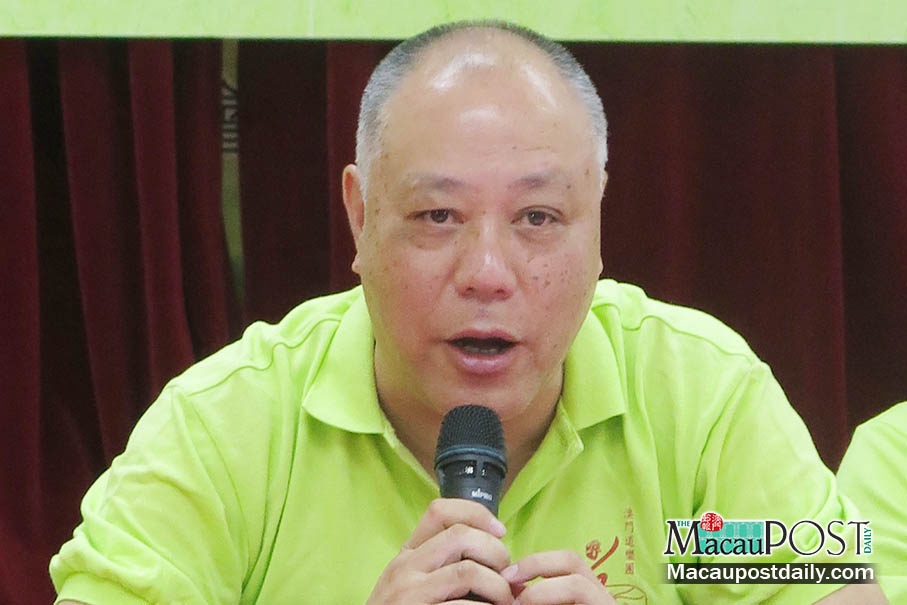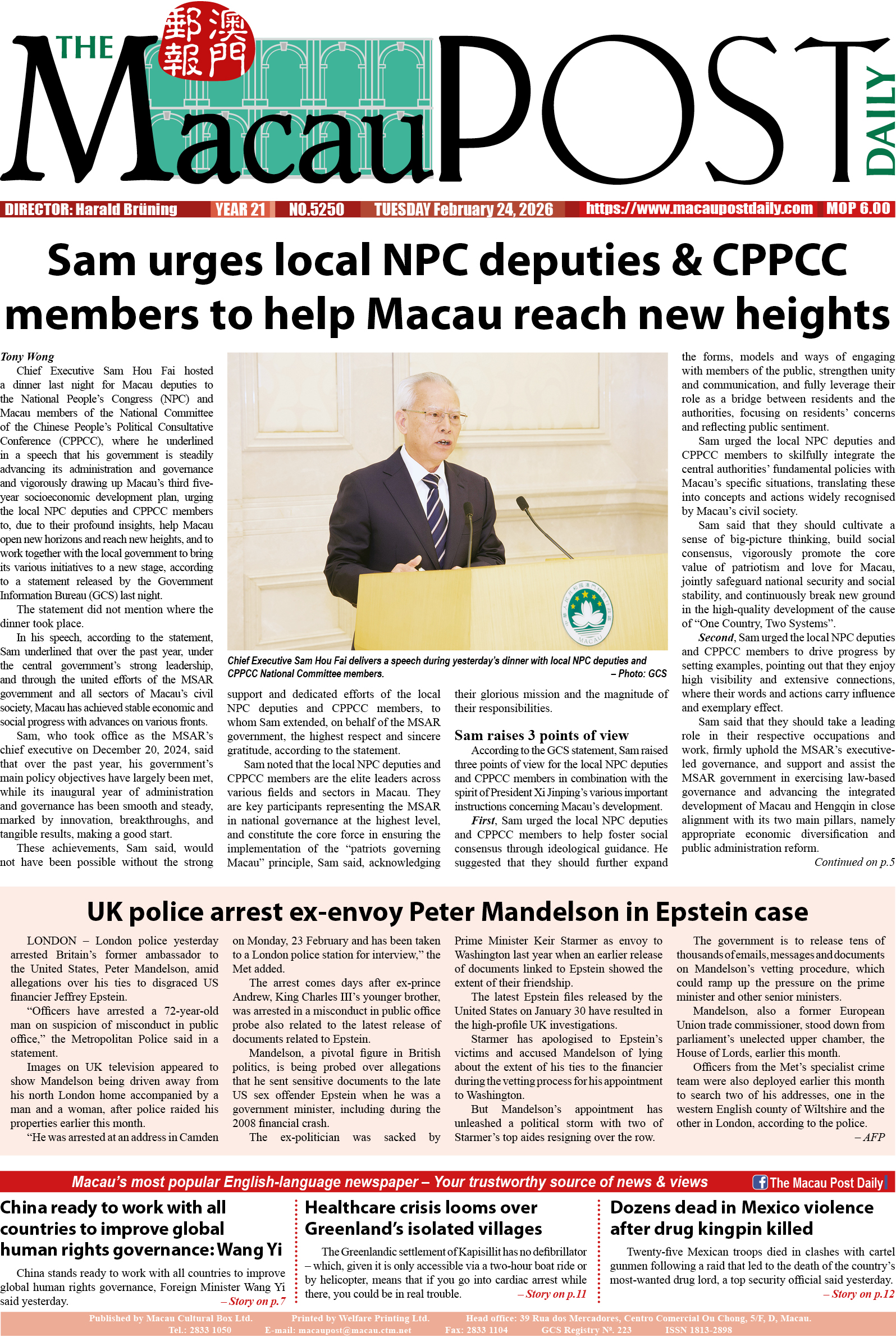The recent 22nd Macau City Fringe Festival, under the theme of “artistic playground”, presented a series of performances and an array of outreach activities last month.
The art-fest organised by the Macau Cultural Affairs Bureau (IC) was held between January 17 and January 28.
The Post interviewed two sets of performers discussing the issue of urban space in the city during its rapid development throughout the years.
A City of Visible Music
In the Outdoor Plaza of Ponte 16, a lorry with a “transparent” container loaded on it was parked, emanating music from within. Upon closer inspection, it turned out there was a singer performing in the container!
As part of the Fringe Festival’s innovative activities, on one day the lorry travelled to different outdoor locations in Macau, taking the music to various corners of the city,
Local veteran musician and programme artistic director Vincent Cheang Chi Tat and the programme’s event planner Benny Lo Wei Pong talked to the Post in an online interview last week about the programme.
They recalled that in the early ‘90s musicians in Macau could organise concerts in parks and other public spaces. “However, with the changing nature of Macau’s urban landscape, particularly the blurred boundaries between residential and industrial areas, performers often faced limitations on their sound volume.”
Amidst these constraints, musicians found it challenging to directly connect with the audience. As a result, many resorted to organising concerts in specialised venues. Yet, the high costs of equipment and rent made operating music venues financially burdensome, Cheang explained.
Hence, this mobile stage emerged as an exploration into the future development of music spaces.
Innovatively, event planner Lo utilised an 11-metre lorry carrying a 6m x 2.5m stage, creating a multifaceted music space. This setup aimed to integrate live music, on-the-spot interviews with singers, and a programme broadcast on the mainland’s renowned podcast “Midnightalks”, seamlessly merging online and offline interactions.
“We collaborated with mainland music critic Guo Xiaohan, independent band lead singer Kang Meow, and Cheang, bringing together three local musicians: Ari Calangi, IronSon, and Julio Acconci,” said Lo.
While Cheang represents the era of radio-promoted music, Julio was active in the Hong Kong pop scene in the early 2000s, and IronSon promoted their music through streaming platforms. “This lineup symbolises both the era and the local music development context.”
Lo admitted that organising such a mobile lorry performance is somewhat “ambitious” due to the hourly cost of renting the vehicle and importing the transparent container from the mainland.
However, with this precedent, there is hope to conduct performances on the city’s streets in the future. “We could even custom-order a size suitable for roaming the streets of Macau, and overcoming technical challenges wouldn’t be insurmountable.”
“We need more local music lovers to know what we’re doing,” said Lo, a sentiment echoed by Cheang, who suggested, “The future direction of developing local music spaces might require a more flexible approach to handling music performances, moving away from long-term operations in a single location.”
“The City of Visible Music has two meanings. Firstly, people can indeed see through the stage from outside the lorry. The second layer of significance lies in allowing music to genuinely flow within the city, providing more room for development,” Lo underlined.
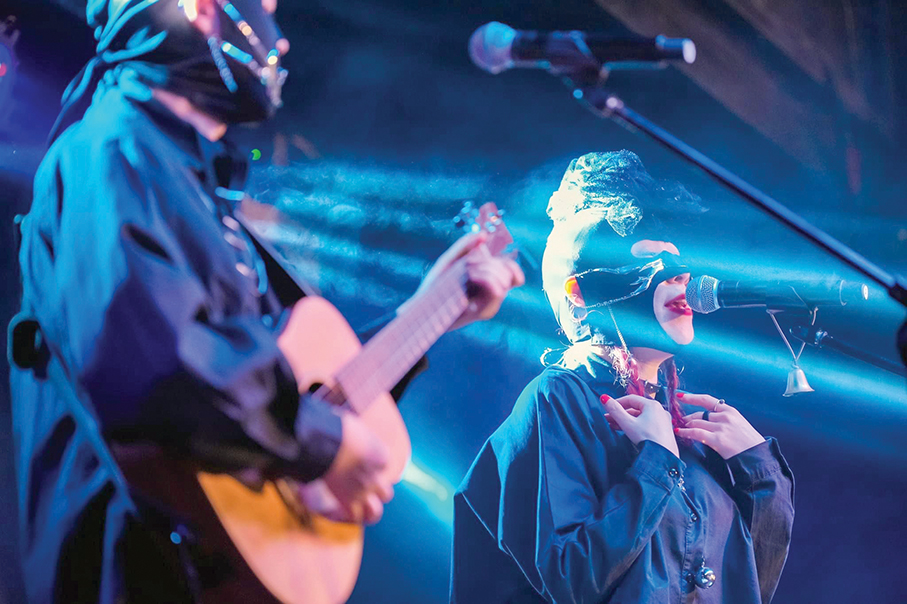
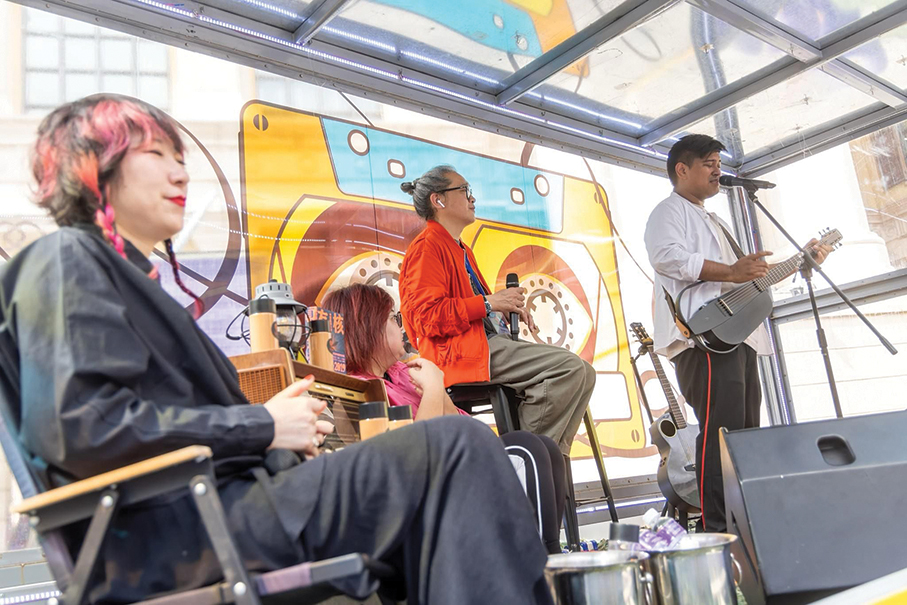
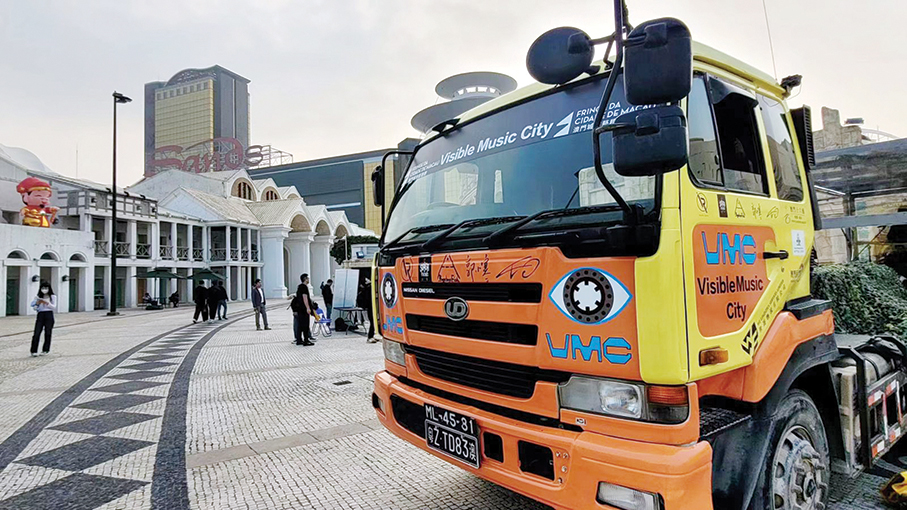
These undated handout photos provided by the organiser shows performances taking place on the “A City of Visible Music” lorry.
Land Act
During the City Fringe Festival last month, a court theatre called “Land Act” took centre stage at the Taipa Grande Viewing Platform.
Presented by the Funny Old Tree Theatre Ensemble, the audience was summoned to serve on a jury for a case of land occupation in “Tip Shek village”.
Creators Vong Weng Chon and Wong Si Lam spoke to the Post a fortnight ago, unravelling the creative process and the underlying social issues, as well as the innovative approach to combining legal judgement, truth, and theatrical performance.
According to Wong, the storyline revolves around a property developer acquiring land in a village to create a tourist resort, sparking disputes with locals over the ownership of the temple on that plot of land.
The courtroom scenes, while not a true legal setting, served as a platform to explore the moral and ethical dilemmas within society. The play aimed to present a tug-of-war between emotion and reason, mirroring the complexities of real-life legal conflicts.
“We hope audience members can put forward their own values to discuss with other audience members,” Wong said.
It is important to know that the jury should not be influenced by outside statements and other pressures during the trial. But if they knew everything that was going on outside the courtroom, would they be able to remain neutral? Does that factor into their calculations?
The creators acknowledged the difficulty of presenting both sides with compelling arguments, but they emphasised the importance of creating a space for audience contemplation.
In order to enable audience members to witness the contrast between a bustling entertainment resort and a traditional village, the team chose the Taipa Grande (Big Taipa) Viewing Platform, where the residential area abuts casinos.
“The view from the platform is exactly the bustling scene of Macau, with casinos, wetlands and residential buildings – there are hills and nature, which are closely linked with the core of our performance.” Wong said.
At the end of the play, the audience applauded even more loudly as the actors pointed in unison to the splendid casino and residential buildings.
Vong expressed the deeper purpose of the play, questioning whether Macau’s undeveloped plots of land should remain untouched or succumb to continuous development, exemplified by the rise of casino resorts.
“Is the current development of Macau aligning with the people’s desires?”, Vong said.
In a society torn between preservation and progress, the dilemma echoes through the play’s narrative and the city.
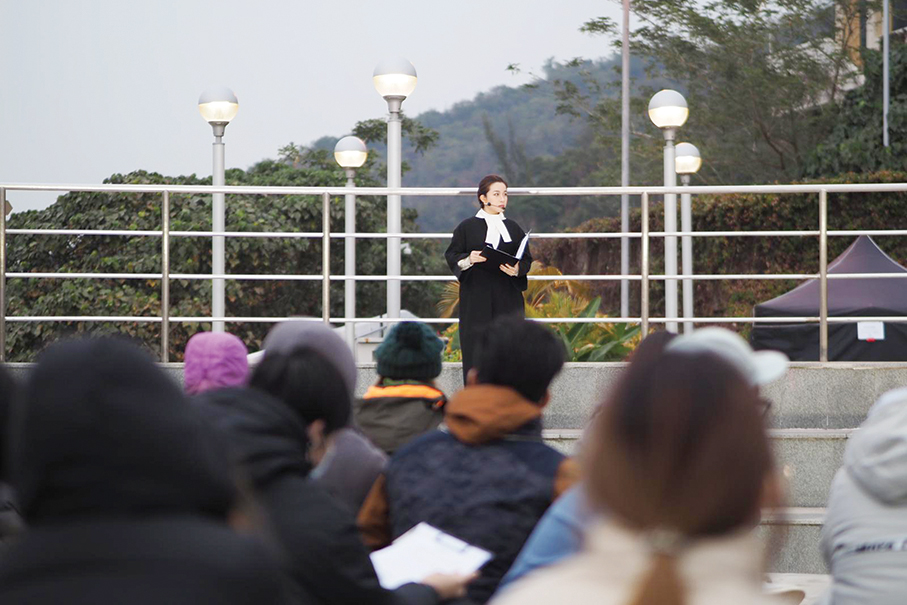
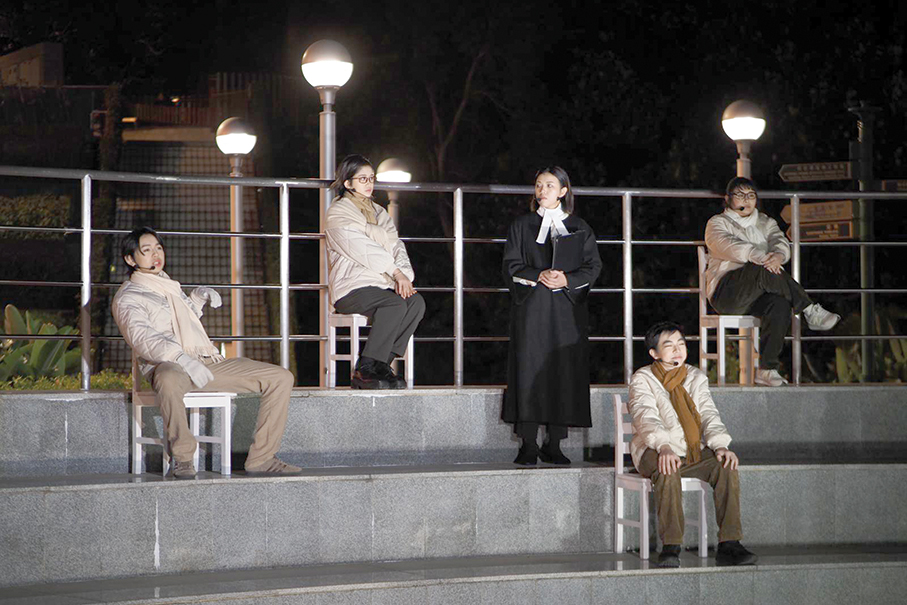
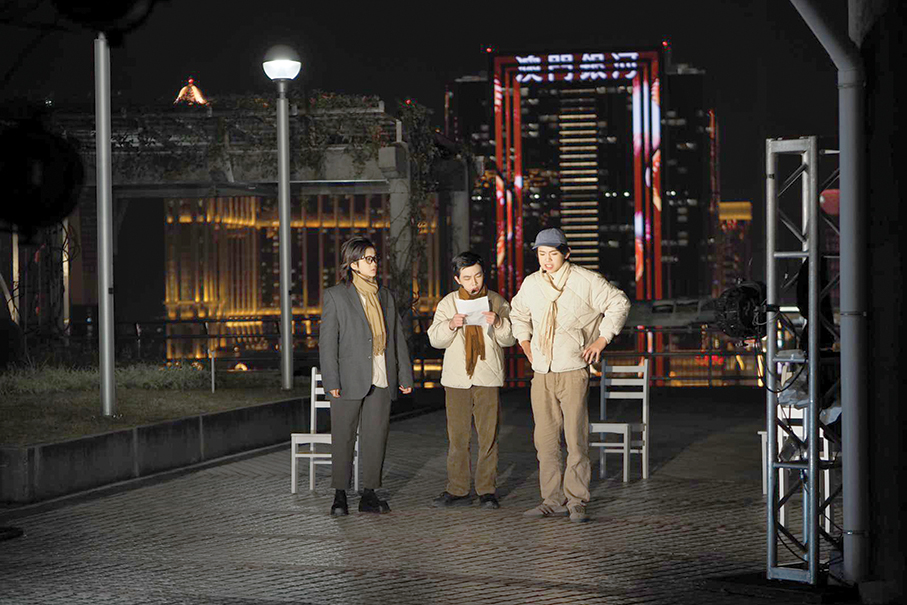
These undated handout photos provided by the organiser show a performance of the “Land Act” court theatre play.






